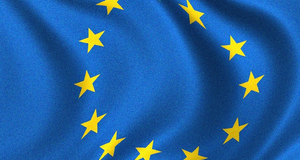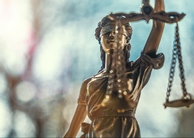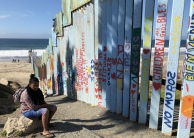Although they lack absolute authority, courts in Europe now hold increasingly supranational power and influence over countries and have come to have direct impact on domestic courts much more than had been historically expressed. The idea of a more consistent and universal application of a definition of human rights was the goal and intent of creating the European Court of Human Rights. This is an extremely difficult task, as there has always historically been a debate over what constitutes human rights.
It has become even more challenging by virtue of the fact that there are so many cultural and traditional differences in each member state of such supranational organizations, such as the European Union and even the United Nations. It is up the to the European Court of Human Rights to enforce the European Convention of Human Rights, which will hopefully lead to a more common standard and approach to human rights. Unfortunately, such a mechanism does not yet exist for the court, aside from recommendations to the Committee of Ministers.
The European Court of Human Rights has been the recipient of significant backlash for a lack of enforcement and lack of implementation of its decisions, but its task is indeed difficult and has thus far achieved a great deal of progress in the scope of human rights. As the world has become more interconnected through globalization and recognition of universally observed principles, the legal culture itself has also become more inclusive. It is through a more diversely incorporated application of rules, treaties, and principles that we can come closer to an ideal universal definition of human rights.
The European Court of Human Rights has been criticized as having less impact because it does not hold power over as many countries quantitatively as some of the aforementioned courts, namely the ICC and ICJ, but only over member countries bound by Article 46 of the Convention on Human Rights. Article 46 grants the European Court of Human Rights with the authority to enforce its decisions such that they are legally binding.
Although there are technically no enforcement mechanisms for implementing judgments (which is true of most courts, whether they be international or domestic courts) members of the Council of Europe can be expelled for ignoring judgments. The court has not as of yet voted to expel any members, but Ukraine has come close to removal as it has blatantly ignored decisions of the Court by failing to implement its judgments in 2001.
Although the United States is not a signatory to the ICC or ICJ, its own legal institutions, namely the United States Supreme Court, respect the inherent values of European courts' decisions. When asked what role international law could hold in United States courts, Chief Justice John Roberts emphasized that he felt international law did indeed play an important role in understanding the legality of issues that were not decided through the American legal system.
The problem with looking to international law court decisions is that the jurisdiction is unclear, and therefore does not allow for the best interpretation of the law. The Chief Justice noted that looking to such decisions for precedent would be like "looking into a crowd and [only] picking out all your friends." He also stated that:
You may [for example] like what the German High Court says, you may not like what the Indonesian High Court says, but if you're just decid[ing] the ones you like, you know, what are you [really] doing? …It doesn't help narrow your discretion in any way. I do think that there are serious legitimacy issues. Some people think that the [Supreme Court] Justices don't believe in international law. Of course we do. We will benefit from looking at that, and we do.
Thus, the American legal system appears to have great potential to interact more so with the European legal system, both to provide and understand precedent. The problematic concern lies in the fact that international jurisdictions are unclear. The European legal system has a broad reach, as discussed, but has not maximized its full potential in part due to its unclear organizational system.
Each of the aforementioned European courts represents various contributions to the legal system in different ways, but none have thus far been as inclusive of or effective as the European Court of Human Rights. The right to a fair trial, for example, as protected under Article 6 of the ECHR, was amended through Funke v. France (1992). Prior to this decision, the right to fair trial had been ambiguously defined. It neither guaranteed "fair" processes for discovery of evidence, nor the proper treatment of the accused party during periods of detention. Jean Gustave Funke was a French citizen who appealed his case to the European Court of Human Rights after French government officials entered his home without a warrant and searched for documents, namely bank statements.
The government believed that such documents would contribute to their allegations that Funke was guilty of fraud. Funke was later ordered to discuss evidence that would put him at risk of indicting himself. The French government perceived his noncompliance with this order as uncooperative behavior, and charged him accordingly. He was imprisoned and fined for his alleged transgressions.
In 1988, the court heard his case on appeal, after a court in Strasbourg (Colmar Court of Appeals, March 1983) ruled in favor of the French government. Funke appealed his case on the grounds of violation of the European Convention on Human Rights, specifically Article 6 (right to fair trial) and Article 8 (right to privacy). Prior to this case, the right to a fair trial had not been a guaranteed right of specific pre-trial discovery: the case modified the ambiguity.
Another issue addressed by this case clarified the legalities of the seizure of evidence. Funke was fortunate enough to have his case accepted for hearing on appeal of certiorari in the European Court of Human Rights. After an extensive appeals process and time-consuming investigation, the court ruled in favor of Funke, citing that the initial request for documents was not invalid, but the methods by which they were sought constituted a violation of privacy.
The ramifications of this decision helped to ensure that in the future searches could not be made legal after they had been conducted by eliminating the possibility of creating ex-post facto laws. The court's decision affected the future conduct of the French government and brought about reforms in the collection of evidence. The distinction is not the request for evidence, but the discovery process and the manner in which it is obtained.
As discussed, the European Court of Human Rights allows individuals to appeal directly to the court: a case such as this, despite being ridden with problems, would be inadmissible to the European Court of Justice. The level at which the individual's human rights are impacted demonstrates how the European Court of Human Rights directly reaches the people within its jurisdiction. Other courts do not have the ability to have such influence.
Another significant case heard by the European Court of Human Rights is Ezelin v. France, in which M. Ezelin, the applicant, was accused of endangering national security and for the obstruction of justice via protest. The court upheld the position of the applicant, and maintained his right to peaceful assembly which was deemed "necessary in a democratic society."
As can be seen from this and Funke, the European Court of Human Rights focuses more on the individual rights than the European Court of Justice: this analysis is not meant to minimize the significance of states' rights, but points to important areas of law that are overlooked when individuals are not allowed to appeal to a specific court, such as the right to privacy and protest.
Serious human rights concerns arose during the Second Chechen War, when Russian military forces invaded Chechnya in 1999. The invasion resulted in the massive killings and torture of Chechen people in the region. Immediately following the conflict, many people filed claims against Russia in the European Court of Human Rights. There have been over 31 cases filed in connection with the Chechen Wars ranging from allegations of torture to extrajudicial executions and murder.
Human rights advocate Zura Bitiyeva brought some of the harshest claims to the European Court of Human Rights for abuses sustained while detained in Chernokozovo Prison for anti-war protests. She provided accounts of her experience in prison, which she alleged included torture. Although declared to be a coincidence of events, after she filed her claim against the Russian government, she and her family were killed before the Court could reach a judgment.
Her only surviving child continued her case in the European Court of Human Rights, though it left him in constant danger of assassination. Although the process of appealing to the Court may present a danger to the individual (especially in this case) it at least grants petitioners the access to the legal system that they would not otherwise have. The European Court of Human Rights uniquely provides the opportunity to voice concerns of states' transgressions, and provides a means of accountability to check their behavior.
As discussed, cases that have been appealed to the European Court of Justice maintain a different range of appellants than the European Court of Human Rights. In the case Nold v. Commission (1974) the European Court of Justice decided that "…[it] is bound to draw inspiration from constitutional traditions common to the member states, and it cannot therefore uphold measure[s] which are incompatible with fundamental rights recognized and protected by the Constitutions of those states."
This decision established an understanding between member states and the European Court of Justice: it allowed state courts to suggest recommendations when European Court of Justice law and state court's rights came into conflict. Although this ideology protects state courts, it is somewhat deleterious to what the European Court of Justice sets out to achieve, and detracts from its legitimacy and authority.
By virtue of the fact that a case as such has been brought before this court, it is indicative that more intense scrutiny and a higher mitigating party is necessary, something that a lower court could not provide. Individual member states of the EU need to have an ultimate authority to make substantial differences through decisions as opposed to unsuccessful domestic courts that do not even begin to address individuals' issues. The European Court of Justice is limited by the Treaties of the European Union (TEU), which illustrate restrictions on the Court and grants far too many exceptions that do not allow decisions to stand.
The specific role of the European Parliament and of the Commission in this area is defined by the Treaties. The Court of Justice of the European Union shall not have jurisdiction with respect to these provisions, with the exception of its jurisdiction to monitor compliance with Article 40 of this Treaty and to review the legality of certain decisions as provided for by the second paragraph of Article 275 of the Treaty on the functioning of the European Union.
These restrictions on the authority of the other courts in Europe force the European Court of Justice to retain less authority and ultimately legitimacy. Unfortunately, this has become a way to justify the lack of enforcement of judicial decisions. There are both short and long-term repercussions to such an approach. The short-term effects provide domestic courts with a substantial authority, while the long-term effects will hopefully benefit the European community by upholding individual rights.
Unfortunately, as has been observed through various cases that have been presented to the ICC and ICJ, some cases have been insufficiently resolved and justice has not necessarily always prevailed. One such example is the case in connection with the Rwandan genocide generals who were tried on the grounds of war crimes and of crimes against humanity. Similar charges have been brought against Joseph Kony, the leader of the Lord's Resistance Army in Uganda. His troops force children to commit horrendous atrocities:
The Lord's Resistance Army spent more than 20 years terrorizing their community and others in the region, stealing children, enslaving them, forcing them to kill their parents and siblings. Many who were not stolen were brutalized. Militia members hacked off people's hands, their heads, their lips and ears.
Although these are blatant violations of human rights, Kony has not yet been faced with sufficient punishment for his crimes. Despite the fact that his Army had been committing such crimes since 1988, only in 2005 did the ICC even call for his arrest. The amount of time that it has taken to attempt to bring him to justice through the international court system can be criticized as a problem of bureaucratic delay to some extent, an inefficient judicial system, or merely an ineffective legal process.
The case brought by Nicaragua against the United States was a demonstration of the how the International Court of Justice presided over the two countries' conflict in 1986. The ICJ ruled that the United States had violated international law by supporting the Contra guerrilla organization in Nicaragua whose forces had attempted to overthrow the current government at the time. The ICJ ruled in favor of Nicaragua and presented its decision to the United Nations Security Council, which voted to enforce the Court's decision immediately. The United States was ordered to stop its attacks on Nicaragua, which was deemed to be in violation of international codes of conduct.
Although both Nicaragua and the United States are UN members, and all UN members are under the International Court of Justice, the US claimed that the ICJ did not have the authority or the jurisdiction to decide the case. Former U.S. ambassador to the United Nations, Jeane Kirkpatrick, called the International Court of Justice a "semi-legal, semi-juridical, semi-political body, which nations sometimes accept and sometimes don't." Although the court was effective in deciding the case, the fact that such legal authority can be undermined so easily through mere rhetoric, deeply tarnished its ability to be taken seriously, and is highly indicative of a wavering legitimacy.
The International Court of Justice heard the case of Bosnia and Herzegovina v. Serbia and Montenegro (2007) in which Serbia was accused of genocide against Muslims living in Bosnia, constituting the systematic elimination of a particular group. The court decided that Serbia was not directly at fault or responsible for the genocide, and that it was not a party to a conspiracy against Muslims.
However, the court also stated that Serbia had breached the Genocide Convention. It argued that because Serbia had not directly prevented the genocide or punished the perpetrators, it had defaulted on its obligation to do so under the Convention. The court had previously ruled that Serbia must do "everything in its power to prevent genocide" and referred to this in its condemnation of Serbia's actions.
That, as a result of the international responsibility incurred for the…violations of the Convention on the Prevention and Punishment of the Crime of Genocide, the Federal Republic of Yugoslavia (Serbia and Montenegro) is required to pay, and the Republic of Bosnia and Herzegovina is entitled to receive, in its own right…full compensation for the damages and losses caused, in the amount to be determined by the Court… for the proceedings in this case.
The court did not embrace its authority to the extent that it could have, and reached its verdict by taking the perspective of a state court while still applying the definitions of the Genocide Convention. While this scope would be acceptable at a state level court, the court should have ruled with the authority of an international body. The court would potentially be better able to determine and rule on issues that would have been helpful to the population of Bosnia-Herzegovina as a whole.
Even the president of the International Court of Justice, Rosalyn Higgins, felt that the evidence presented to the court was sufficient to convict Serbia for crimes against humanity and war crimes in Bosnia-Herzegovina, but that the court lacked sufficient jurisdiction to rule on such claims. "The International Court of Justice does not have jurisdiction over them [allegations of war crimes and crimes against humanity], because this case deals 'exclusively with genocide in a limited legal sense and not in the broader sense sometimes given to this term."
This landmark case has been presented to the ICJ with charges including both genocide and war crimes, but the verdict falls short on multiple levels: the decision was not as effective as it could have been and the court did not fulfill its potential as a legal institution. The court's effectiveness is thus unclear: however, through historical examination and research, the European Court of Human Rights has demonstrated and offered a variety of solutions to injustices that have been imposed upon the global community.Continued on Next Page »
Amnesty International- Public Statement: Russian Federation and European Court of Human Rights Rulings on Bitiyeva and X v. Russia. June 21, 2007 (http://asiapacific.amnesty.org/library/Index/ENGEUR460272007?open&of=ENG-RUS).
Application of the Convention on the Prevention and Punishment of the Crime of Genocide (Bosnia and Herzegovina v. Serbia and Montenegro). International Court of Justice, (http://www.icjcij.org/docket/index.php?sum=667&code=bhy&p1=3&p2=2 &case =91&k=f4&p3=5) accessed February 18, 2010.
Arold, Nina Louise. The Legal Culture of the European Court of Human Rights. Brill Academic Publishers Koninklikle, 2007.
Association des Conseils d'Etat et des Jurisdictions administratives suprêmes de l'Union européenne (http://www.juradmin.eu/en/history/history_en.html) accessed February 23, 2010.
Balkin, Jack M. "What Brown Teaches Us About Constitutional Law." Virginia Law Review, Vol. 90, No. 6 (October 2004):1542.
Bitiyeva and X v. Russia 2009, App. No. 57953/00, 37392/03. Accessed from the Chechen Republic Ichkebia (http://www.waynakh.com/eng/2009/05/bitiyeva-and-x-v-russia/).
Chivers, C.J. "Journalist Critical of the Chechen War is Shot Dead." New York Times, October 8, 2006.
Clapham, Andrew. Human Rights: A Very Short Introduction. Oxford University Press, Oxford, 2007.
Council of Europe, Convention on Cybercrime: Signatures and Ratifications- CETS No. 185. Entered into force July 1, 2004. (http://conventions.coe.int/Treaty/Commun/ChercheSig.asp?NT=185 &CM=&DF=&CL=ENG) accessed July 15, 2013.
Council of Europe: "The Council of Europe in Brief," n.d., (http://www.coe.int/aboutCoe/index.asp?page=datescles&l=en) accessed February 12, 2010.
Council of Europe, European Convention on Human Rights. Entered into force September 3, 1953.
Council of Europe Protocol No. 14 to the Convention for the Protection of Human Rights and Fundamental Freedoms, amending the control system of the Convention. Entered into force June 1, 2010.
Council of Europe Document: Report of the Monitoring Committee of March 14, 2000, Document 8666.
Council of Europe Press Notice of April 26, 2001. "Report of monitoring Committee of March 14 2000," Council of Europe.
Constitutional Dictionary (usconstitution.net) accessed Jan 31, 2010.
Damrosch, Lori. Law and Force in the New International Order. Oxford, Westview Press, 1991.
European Court of Human Rights Official Texts. (http://www.echr.coe.int/Pages/home. aspx?p=basictexts&c=#n1359128122487_pointer) accessed September 10, 2014.
Ezelin v. France (11800/85) 1991. Accessed on April 1, 2010 (http://cmiskp.echr.coe.int/tkp197/view.asp?action=html&documentId=695552& portal=hbkm&source=externalbydocnumber&table=F69A27FD8FB86142BF01C1166DEA398649).
Friedman, Lawrence M. "Is There a Modern Legal Culture?" Ratio Juris (1994).
Friedman, Lawrence M. "The Concept of Legal Culture: A Reply" in David Nelken's Comparing Legal Cultures: Aldershto, Dartmouth, 1997.
Funke v. France, App. No 10828/84. Decision Feb. 25. 1993. (http://cmiskp.echr.coe.int/tkp197/view.asp?action=html&documentId=695686&portal =hbkm&source=externalbydocnumber&table=F69A27FD8FB86142BF01C1166DEA398649).
The Hague, Press Release: "Serbia Found Guilty of Failure to Prevent and Punish Genocide." Sense Tribunal Online, February 26, 2007, (http://www.sense-agency.com/international_court_of_justice/serbia-found-guilty-of-failure-to-prevent-and-punish-genocide.47.html?cat_id=2&news_id=10129) accessed February 6, 2010.
Handyside v. UK. Application No. 5493/72 (1976) (http://hudoc.echr.coe.int/sites/eng/pages/ search.aspx?i=001-57499#{"itemid":["001-57499"]}) accessed on September 14, 2014.
Helfer, Lawrence and Anne-Marie Slaughter. "Toward a Theory of Effective Supranational Litigation." Yale Law Journal (1997) pg. 296.
International Criminal Court. "States Parties to the Rome Statute." The Hague, n.d. (http://www.icc-cpi.int/Menus/ASP/states+parties/) accessed on March 3, 2010.
International Court of Justice, Statute of the International Court of Justice (http://www.icj-cij.org/documents/?p1=4&p2=2) accessed August 28, 2014.
Keylor, William R. Twentieth Century World and Beyond: An International History Since 1900. Oxford University Press, Oxford, 5th edition, 2005.
Mahony, Paul. "Marvelous Richness of Diversity or Individual Cultural Relativism," Human Rights Law Journal (1998).
Merryman, John Henry. The Civil Law Tradition, An Introduction to the Legal Systems of Western Europe and Latin America. Stanford University Press, Stanford, 1985.
Military Tribunals at Nuremburg: Official Record, United States v. Karl Brandt, Siefgried Handlose, Paul Rostock, Oskar Schroeder, Karl Genzken, Kurt Blome, Rudolf Brandt, Joachim Mrugowsky, Helmut Popendick, Wolfram Sievers, Konrad Shaefer, Waldemar Hoven, Wilhem Beigleboeck, Fraitz Fischer, Adolf Pekorny, etc. Nuremberg, 1946. pg. 8-12.
Mirow, M.C. "The Power of Codification in Latin America: Simón Bolívar and the Code Napoléon" (http://heinonline.org/HOL/LandingPage?collection=journals&handle= hein.journals/t ulicl8&div=7&id=&page=) accessed March 14, 2010.
Mole, Nuala and Catharina Harby. "The Right to Fair Trial: A Guide to the implementation of Article 6 of the European Convention on Human Rights." Belgium: Council of Europe, 2006.
Nicaragua v. United States of America (1986) International Court of Justice decision (http://www.icj-cij.org/docket/index.php?sum=367&p1=3&p2=3&case=70&p3=5).
Nino, Carlos Santiago. The Ethics of Human Rights. Oxford University Press, Oxford, 1991.
Nold v. Commission, 4/73 [1974] ECR 491 (http://eur-lex.europa.eu/Lex UriServ/LexUriServ.do?uri=CELEX:61973CJ0004:EN:PDF) accessed March 3, 2010.
Posner, Eric A. "Is the International Court of Justice Biased?" University of Chicago Law School , John M. Olin Law & Economics Working Paper No. 234, 2nd Series, December 2004 (http://www.law.uchicago.edu/files/files/234.eap_.icj-bias.pdf) accessed September 12, 2014.
The Prosecutor v. Joseph Kony, Vincent Otti, Okat Odhiambo and Dominic Ongwen. Cour Pénale Internationale ICC-02/04-01/05 (http://www.icccpi.int/en_menus/icc/ situations% 20and%20cases/situations/situation%20icc%200204/related%20cases/icc %200204%200105/Pages/uganda.aspx) accessed September 3, 2014.
Rainey, Bernadette, Elizabeth Wicks, and Clare Orey. The European Convention on Human Rights. Oxford University Press, Oxford, 2014.
Reagan, Ronald. "Tear Down This Wall." Speech, Berlin, Germany, June 12, 1987.
Roberts, John (Chief Justice). Speech, University of Alabama Law School, March 9, 2010.
Roth, Ken. Human Rights Watch field report: April 2001.
Simons, Marlise. "Court in Hague Issues Arrest Warrants for Ugandan Rebels." New York Times, October 15, 2005.
"State of Human Rights and Democracy in Europe." Debate at the Assembly. December 2007. Council of Europe Publishing.
Steiner, Henry J. and Philip Alston. International Human Rights in Context, Law Politics, Moral. Oxford University Press, Oxford, 2nd edition, 2000.
"Strasbourg to Rule on Torture and Killing of Chechen Peace Activist." European Human Rights Advocacy Centre: London Metropolitan University, June 19, 2007 (http://www.londonmet.ac.uk/londonmet/library/h98248_3.pdf) accessed April 1, 2010.
Thompkins, Gwen. "Victims of African Violence Sing for Justice," National Public Radio: broadcasted November 28, 2009.
Treaty of the European Union (Maastricht Treaty), Effective February 7, 1992.
Treaty of Lisbon amending the Treaty on European Union and the Treaty establishing the European Community. Signed December 17, 2007.
Trombley, Stephen. Nuremberg. Film. Directed by Stephen Trombley. New York, NY: Filmakers Library, 1996.
United Nations General Assembly. Convention on the Prevention and Punishment of the crime of Genocide, Adopted by Resolution 260 (III) A on 9 December 1948. Available online (http://www.hrweb.org/legal/genocide.html).
United Nations General Assembly, Rome Statute of the International Criminal Court (last amended 2010) Article XII. (http://legal.un.org/icc/statute/99_corr/cstatute.htm) accessed August 1, 2014.
United Nations Office of the High Commissioner for Human Rights (Adopted 10 December 1984 entry into force June 26, 1987, in accordance with article 27(1). Convention Against Torture and Other Cruel, Inhuman, or Degrading Treatment or Punishment (http://www.ohchr.org/EN/ProfessionalInterest/Pages/CAT.aspx) accessed March 1, 2010.
United States Holocaust Memorial Museum, Washington, D.C. (http://www.ushmm.org/wlc/article.php?lang=en&ModuleId=10005143) accessed February 2, 2010.
Endnotes
1.) Council of Europe Site, "Council of Europe: In Brief." Accessed February 12, 2010 (http://www.coe.int/aboutCoe/index.asp?page=datescles&l=en). The founding countries of Council of Europe: Belgium, France, Luxembourg, the Netherlands, the United Kingdom, Ireland, Italy, Demark, Norway, and Sweden.
2.) Steiner, Henry J. and Philip Alston. International Human Rights in Context, Law Politics, Moral, (Oxford University Press, Oxford, 2nd edition, 2000), pp. 801, 807; Laurence Helfer and Anne-Marie Slaughter, 'Toward a Theory of Effective Supranational Litigation, 107, Yale Law Journal (1997) pg. 296.
3.) Arold, Nina Louise. The Legal Culture of the European Court of Human Rights: Brill Academic Publishers Koninklikle (2007), 14-15.
4.) Ibid, 2.
5.) Any individual who is a citizen of one of the current 47 member states of the Council of Europe may appeal to the European Court of Human Rights.
6.) Nuremberg (video): Stephen Tremblay, 2001.
7.) Military Tribunals at Nuremburg: Official Record, United States v. Karl Brandt, Siefgried Handlose, Paul Rostock, Oskar Schroeder, Karl Genzken, Kurt Blome, Rudolf Brandt, Joachim Mrugowsky, Helmut Popendick, Wolfram Sievers, Konrad Shaefer, Waldemar Hoven, Wilhem Beigleboeck, Fraitz Fischer, Adolf Pekorny, etc. Nuremberg, 1946. pg. 8-12.
8.) United States Holocaust Memorial Museum, accessed February 2, 2010 (http://www.ushmm.org/wlc/article.php?lang=en&ModuleId=10005143).
9.) Keylor, William R. Twentieth Century World and Beyond: An International History Since 1900, 5th Edition. Oxford University Press, Oxford (2005) pg. 177-178.
10.) International Criminal Court: States Parties to the Rome Statute. Accessed on March 3, 2010 (http://www.icc-cpi.int/Menus/ASP/states+parties/).
11.) Rome Statute of the International Criminal Court, Article XII accessed August 1, 2014 (http://legal.un.org/icc/statute/99_corr/cstatute.htm).
12.) Convention Against Torture and Other Cruel, Inhuman, or Degrading Treatment or Punishment, 1987.
13.) European Court of Human Rights Official Texts. Accessed September 10, 2014 (http://www.echr.coe.int/Pages/home.aspx?p=basictexts&c=#n1359128122487_pointer).
14.) Arold, 20.
15.) Ibid, 21.
16.) Nino, Carlos Santiago. The Ethics of Human Rights: Oxford University Press, Oxford (1991). Carlos Santiago Nino was a prominent legal scholar whose work represented progressive thought, especially with regard to morality.
17.) Constitutional Dictionary, ex post facto defined as: "1st. Every law that makes an action done before the passing of the law, and which was innocent when done, criminal; and punishes such action. 2d. Every law that aggravates a crime, or makes it greater than it was, when committed. 3d. Every law that changes the punishment, and inflicts a greater punishment, than the law annexed to the crime, when committed. 4th. Every law that alters the legal rules of evidence, and receives less, or different, testimony, than the law required at the time of the commission of the offense, in order to convict the offender."
From usconstitution.net (accessed Jan 31, 2010).
18.) Rome Statute of the International Criminal Court: Part 13, Article 124. Accessed on September 9, 2014 (http://www.icc-cpi.int/nr/rdonlyres/ea9aeff7-5752-4f84-be94-0a655eb30e16/0/rome_statute_english.pdf).
19.) Arold, 3.
20.) This is in no way implicit that legal systems change or should change in accordance with or at the whim of social pressures, but serves only as a comment on the inclusion of certain accommodations.
21.) Convention on Cybercrime: Signatures and Ratifications Accessed July 15, 2013 (http://conventions.coe.int/Treaty/Commun/ChercheSig.asp?NT=185&CM=&DF=&CL=ENG).
22.) Merryman, John Henry. The Civil Law Tradition, An Introduction to the Legal Systems of Western Europe and Latin America: Stanford University Press, Stanford (1985) pg. 9.
23.) Arold, 3.
24.) Clapham, Andrew. Human Rights: A Very Short Introduction: Oxford University Press: Oxford (2007) pg. 43.
25.) Mirow, M.C. "The Power of Codification in Latin America: Simón Bolívar and the Code Napoléon" accessed March 14, 2010 (http://heinonline.org/HOL/LandingPage?collection=journals&handle=hein.journals/tulicl8&div=7&id=&page=) pg. 96.
26.) Arold, 5.
27.) Ibid, 207.
28.) Reagan, Ronald. "Tear Down This Wall" Speech, Berlin, Germany, June 12, 1987.
29.) Association des Conseils d'Etat et des Jurisdictions administratives suprêmes de l'Union européenne, accessed February 23, 2010 (http://www.juradmin.eu/en/history/history_en.html)
30.) A detailed study on the Convention and its case law provides brilliant analysis. See Bernadette Rainey, Elizabeth Wicks, Clare Orey. The European Convention on Human Rights: Oxford University Press, Oxford (2014).
31.) Arold, 6.
32.) Ibid, 6.
33.) Clapham, 76 cites Ken Roth, Human Rights Watch field report: April 2001.
34.) Statute of the International Court of Justice, Article 65: accessed August 28, 2014 (http://www.icj-cij.org/documents/?p1=4&p2=2).
35.) Statute of the International Court of Justice, Article 59.
36.) Mahony, Paul. "Marvelous Richness of Diversity or Individual Cultural Relativism," Human Rights Law Journal, (1998) pg.1.
37.) See Application No. 5493/72 Handyside v. UK (1976) Accessed on Spetember 14, 2014 (http://hudoc.echr.coe.int/sites/eng/pages/search.aspx?i=001-57499#{"itemid":["001-57499"]}).
38.) Balkin, Jack M. "What Brown Teaches Us About Constitutional Law." Virginia Law Review, Vol. 90, No. 6 (October 2004):1542.
39.) Arold, 30.
40.) European Convention on Human Rights, Article 46.
41.) Arold, 38.
42.) Ibid, 22.
43.) Debate at the Assembly: State of Human Rights and Democracy in Europe, December 2007. Council of Europe Publishing. pg. 14.
44.) Arold, 14.
45.) Treaty of Lisbon amending the Treaty on European Union and the Treaty establishing the European Community. Signed December 17, 2007.
46.) Protocol No. 14 to the Convention for the Protection of Human Rights and Fundamental Freedoms, amending the control system of the Convention. Entered into force June 1, 2010.
47.) Arold, 6.
48.) Ibid, 6.
49.) Ibid, 7.
50.) Article 46, European Convention on Human Rights.
51.) Arold, 7.
52.) Friedman, Lawrence M. "Is There a Modern Legal Culture?" Ratio Juris (1994) pg. 119; Also Lawrence Friedman, "The Concept of Legal Culture: A Reply" in David Nelken's Comparing Legal Cultures: Aldershto: Dartmouth (1997) pg. 34.
53.) Report of the Monitoring Committee of March 14, 2000, Council of Europe Document 8666.
54.) Arold, 31.
55.) Council of Europe Press Notice of April 26, 2001: "Report of monitoring Committee of March 14 2000," Council of Europe (pg. 31).
56.) Speech given by Chief Justice John Roberts at the University of Alabama Law School, March 9, 2010.
57.) Ibid.
58.) Nuala Mole and Catharina Harby, "The Right to Fair Trial: A Guide to the implementation of Article 6 of the European Convention on Human Rights. Belgium: Council of Europe, 2006.
59.) Funke v. France, App. No 10828/84. Decision Feb. 25. 1993. Accessed online (http://cmiskp.echr.coe.int/tkp197/view.asp?action=html&documentId=695686&portal =hbkm&source=externalbydocnumber&table=F69A27FD8FB86142BF01C1166DEA398649).
60.) Mole, Article 6 Handbook.
[61] Ezelin v. France (11800/85) 1991. Accessed on April 1, 2010 (http://cmiskp.echr.coe.int/tkp197/view.asp?action=html&documentId=695552& portal=hbkm&source=externalbydocnumber&table=F69A27FD8FB86142BF01C1166DEA398649).
62.) Ibid.
63.) Located in Chechnya; Bitiyeva alleged forged evidence, coercion, torture by police forces. See Baysayev, Usam. Prague Watchdog: Heroes not of Our Time, July 22, 2009. Accessed at http://www.watchdog.cz/?show=000000-000024-000002-000015&lang=1.
64.) Bitiyeva and X v. Russia 2009, European Court of Human Rights case, accessed from the Chechen Republic Ichkebia (http://www.waynakh.com/eng/2009/05/bitiyeva-and-x-v-russia/).
65.) Chivers, C.J. "Journalist Critical of the Chechen War is Shot Dead." New York Times, October 8, 2006.
66.) European Human Rights Advocacy Centre: London Metropolitan University. June 19, 2007: Strasbourg to Rule on Torture and Killing of Chechen Peace Activist. Accessed April 1, 2010 (http://www.londonmet.ac.uk/londonmet/library/h98248_3.pdf).
67.) Amnesty International- Public Statement: Russian Federation and European Court of Human Rights Rulings on Bitiyeva and X v. Russia. June 21, 2007. Accessed online (http://asiapacific.amnesty.org/library/Index/ENGEUR460272007?open&of=ENG-RUS).
68.) Nold v. Commission, 4/73 [1974] ECR 491 on March 3, 2010.
69.) Treaty of the European Union, Article 24.
70.) A special tribunal was formed to hear this case in 1994, as the ICC was not officially created until 2002. The case was held in the International Criminal Tribunal for Rwanda, as established by the UN Security Council.
71.) Kony was charged with crimes against humanity on 33 counts, including rape, murder, and torture.
72.) "Victims of African Violence Sing for Justice," National Public Radio: November 28, 2009.
73.) "Court Seeks Arrests of Ugandan Rebels." New York Times: October 15, 2005.
74.) Cour Pénale Internationale ICC-02/04-01/05 The Prosecutor v. Joseph Kony, Vincent Otti, Okat Odhiambo and Dominic Ongwen. Accessed September 3, 2014 (http://www.icc-cpi.int/en_menus/icc/situations%20and%20cases/situations/situation%20icc%200204/related%20cases/icc%200204%200105/Pages/uganda.aspx).
75.) Damrosch, Lori. Law and Force in the New International Order. (Oxford: Westview Press (1991) pg. 270-282.
76.) Nicaragua v. United States of America (1986) International Court of Justice decision: available online (http://www.icj-cij.org/docket/index.php?sum=367&p1=3&p2=3&case=70&p3=5).
77.) Posner, Eric A. Is the International Court of Justice Biased? University of Chicago Law School (December 2004) accessed September 12, 2014 (http://www.law.uchicago.edu/files/files/234.eap_.icj-bias.pdf) pg. 3.
78.) Definition from the Convention to Prevent Genocide 1948: genocide means "…any of the following acts committed with intent to destroy, in whole or in part, a national, ethnical, racial or religious group, as such:
(a) Killing members of the group;
(b) Causing serious bodily or mental harm to members of the group;
(c) Deliberately inflicting on the group conditions of life calculated to bring about its physical destruction in whole or in part;
(d) Imposing measures intended to prevent births within the group;
(e) Forcibly transferring children of the group to another group (definition available online at http://www.hrweb.org/legal/genocide.html).
79.) Application of the Convention on the Prevention and Punishment of the Crime of Genocide (Bosnia and Herzegovinav. Serbia and Montenegro). Accessed on February 18, 2010 (http://www.icj-cij.org/docket/index.php?sum=667&code=bhy&p1=3&p2=2&case=91&k=f4&p3=5).
80.) Ibid, paragraphs 425-447.
81.) Ibid, Bosnia and Herzegovina v. Serbia and Montenegro (2007) accessed online at http://www.icj-cij.org/docket/files/91/13685.pdf.
82.) Ibid, decision, pg. 21.
83.) Press Release from the Hague: "Serbia Found Guilty of Failure to Prevent and Punish Genocide." February 26, 2007- Sense Tribunal Online. Accessed February 6, 2010 (http://www.sense-agency.com/international_court_of_justice/serbia-found-guilty-of-failure-to-prevent-and-punish-genocide.47.html?cat_id=2&news_id=10129).
84.) The scope of this paper covers the European systems, and does not address other parts of the world. The UN's ICC and ICJ cover other areas globally, but again are confronted by similar problems of inadequate jurisdiction and power. These concerns are not limited to the European legal system alone.



















